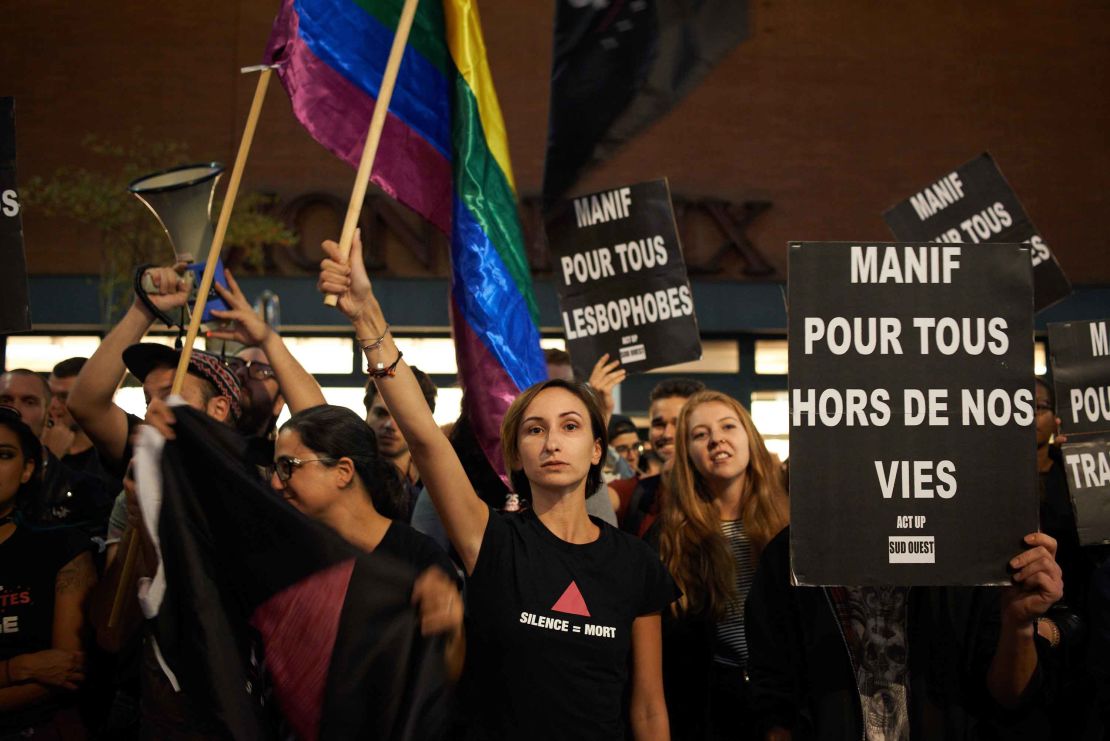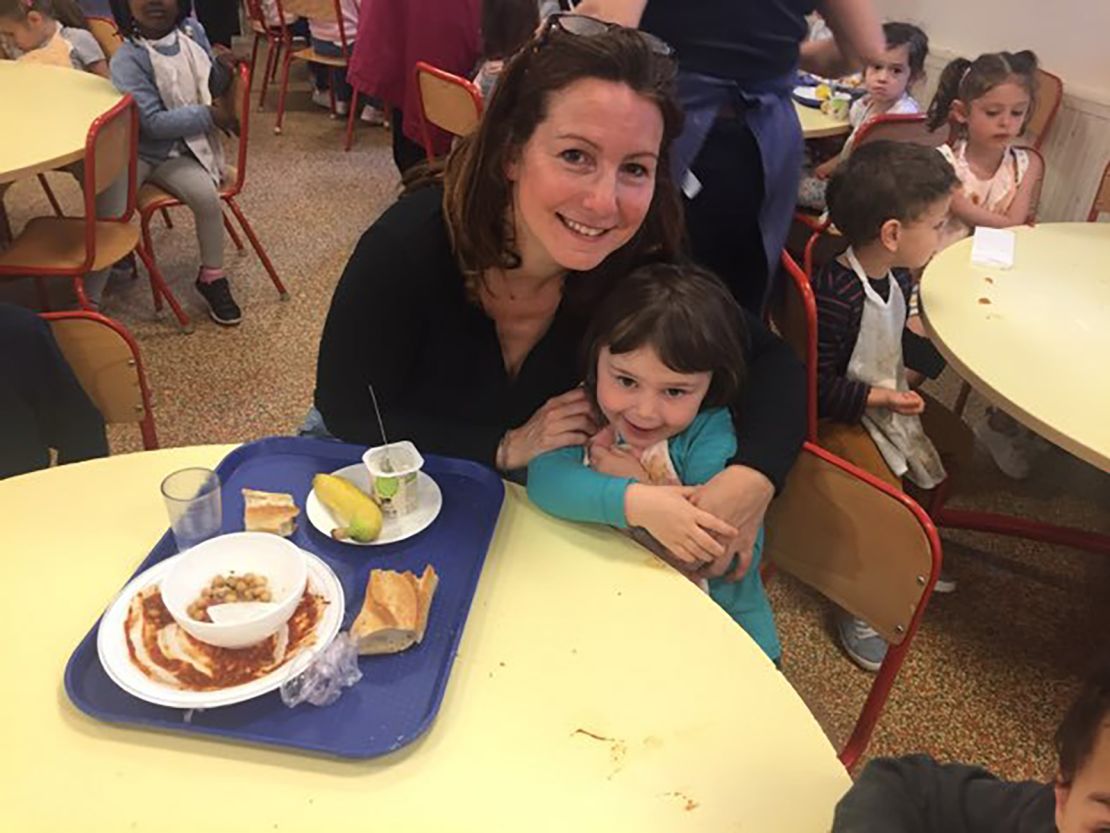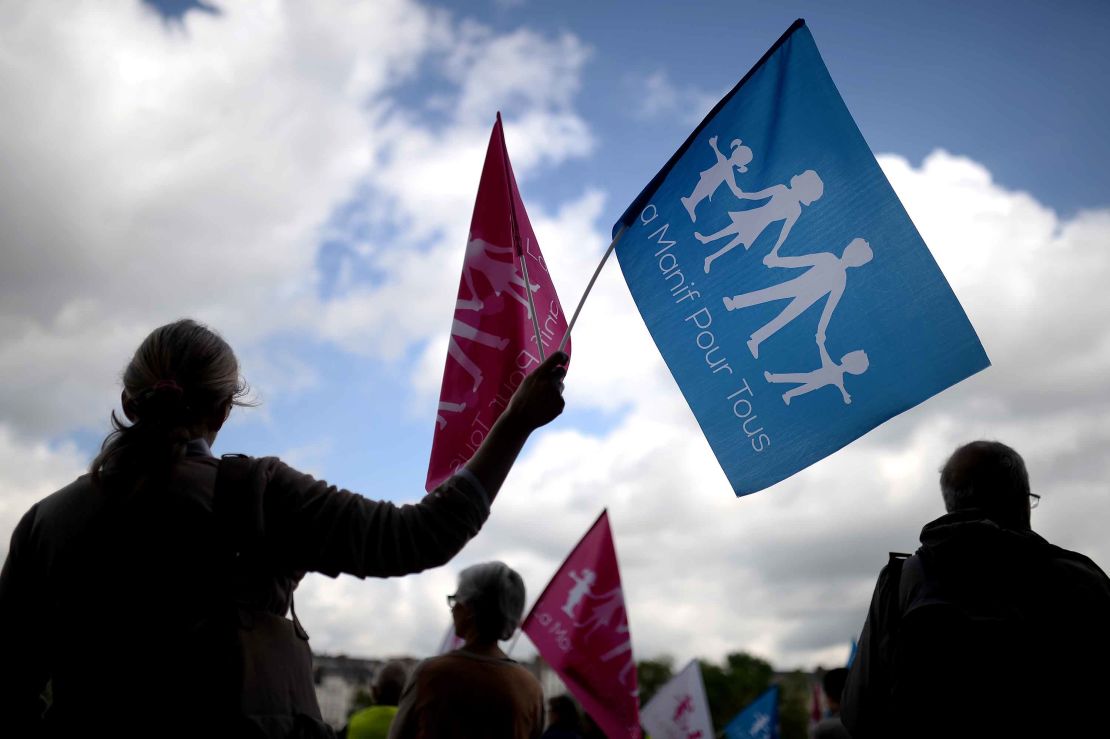Isabelle Laurans and her boyfriend spent years trying for a baby. When it didn’t work, they decided to see if fertility treatment would help them conceive.
But on the day of their first hospital appointment, he ended the relationship. Heartbroken, Laurans took stock of her situation.
“My desire to be a mother was very, very strong and I was nearly 38 … I wondered, even if I met someone, perhaps I won’t have the time,” she said.
So she came up with a plan B: “Baby first, relationship later.”
There was one big problem: In France, where Laurans is from, in vitro fertilization (IVF) and other fertility treatments are effectively illegal for single women and lesbian couples.
Earlier this week, the French Parliament started debating whether to broaden access to assisted reproductive treatments to those groups. The reform passed through the first reading on Friday.
But Laurans had to travel to Belgium, where the law is less restrictive, in order to fulfill her dream of becoming a mother.
Two years, and two grueling IVF cycles later, she gave birth to a healthy daughter, Charlotte.
Laurans paid €5,000 ($5,520) for her treatment. And while she was able to afford the trip, she says such costs are prohibitive for many other would-be parents – an inequality she says goes against the very basic principles of the French constitution.
“We just want the same rights as heterosexual couples,” she told CNN. “Liberty, equality and fraternity [of] our parental rights.”

In an attempt to secure those rights for others, Laurans co-founded Mam’ensolo, an organization lobbying for universal access to medically-assisted reproductive treatments.
Mam’ensolo’s demand is part of a sweeping reform of France’s bioethics law.
Current legislation limits access to the treatments to heterosexual couples who are either married or can prove they have been living together and sharing finances for at least two years.
Anyone else wanting to conceive artificially has to go abroad.
The desire to have a child took Elodie Leroy-Le Moigne and her wife all the way to Denmark. Aside from being stressful and expensive, she says the experience also left her feeling completely at the mercy of others.
“You are an outlaw and you rely on the goodwill of people,” she explained, adding that even though the main part of the process took place abroad, she needed to undergo a number of ultrasounds and fertility treatments in France ahead of the trip.
“Going to the pharmacy, you never know, some pharmacists can decide they won’t sell it to you, I have the prescription for the injections from my physician, but they say no, it’s illegal,” she says.
The couple is planning for a big family, hoping that when they decide to have another baby, they’ll be able to do so in France.
“Pregnancy is a time of insecurity,” Leroy-Le Moigne says. “You want to be at home, in France, where you speak the language … not in a crappy hotel abroad.”

But whether they will be allowed access to treatment in France in the future is currently down to the country’s National Assembly.
A special parliamentary committee authorized putting the new draft law to a vote earlier this month.The National Consultative Committee on Ethics backed the new rules last year, but members of the Assembly have already proposed 2,033 amendments, suggesting passing the legislation won’t be a plain sailing.
And there are plenty of people outside the Assembly ready and willing to put up a fight.
The most vocal opposition comes from La Manif Pour Tous, a movement that rose to prominence during the 2013 debate around same-sex marriage. The group lost its fight to prevent homosexual couples from being able to marry, but is determined to succeed this time.
Its members argue that allowing single women and lesbian couples to conceive “intentionally and permanently deprives the child of their father,” which, they say, would be “a terrible injustice.”
“It is not the role of medicine to respond to individual desires,” the group said in a statement emailed to CNN. “There is no such thing as the right to a child,” it added.
The organization, along with 20 other groups, has called for a protest against the new law in October.

Some religious leaders have also indicated their opposition to the bill.
Invited to contribute to the debate in the Assembly, the Chief Rabbi of France Ha?m Korsia, the Archbishop of Rennes Bishop Pierre d’Ornellas, and the President of the Protestant Federation Pastor Fran?ois Clavairoly, all cautioned against opening the treatments up to a wider section of the population.
Despite the opposition, Laurans has high hopes that the law will be passed.
“I think French society is ready,” she says, adding that those who still can’t imagine a family that isn’t composed of “a woman, a man and a child” are in minority.
“This law, it’s also symbolic because it will be the validation of our family.”
For Leroy-Le Moigne, the issue is far more practical: “My wife has no legal rights to my daughter, because adoption takes eight months, and until the adoption papers are here, it’s like we are not a real family.”
Under the proposed reforms, Leroy-Le Moigne’s wife would be considered a legal parent automatically.
The couple’s daughter is now six months old. Despite starting the adoption process as soon as they were able to, the family hit roadblocks along the way, and Leroy-Le Moigne’s wife still hasn’t been recognized as the baby’s parent.
“It was summer, and in summertime, nobody works in France for two months,” she says, adding that she hopes they will become “a real family” by the time her daughter turns one: “We plan a big party for it.”
CNN’s Arnaud Siad contributed reporting.




